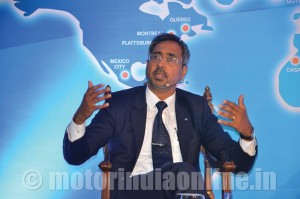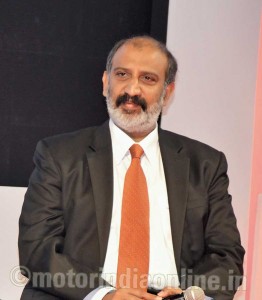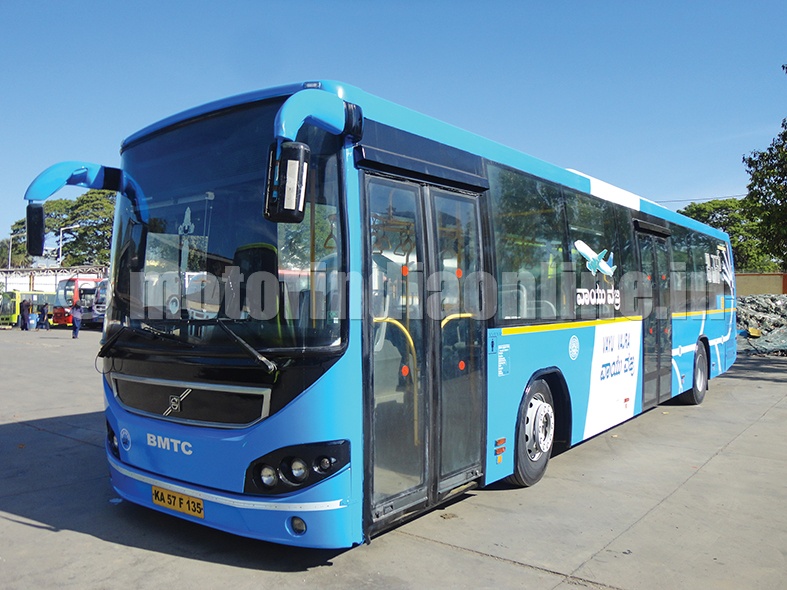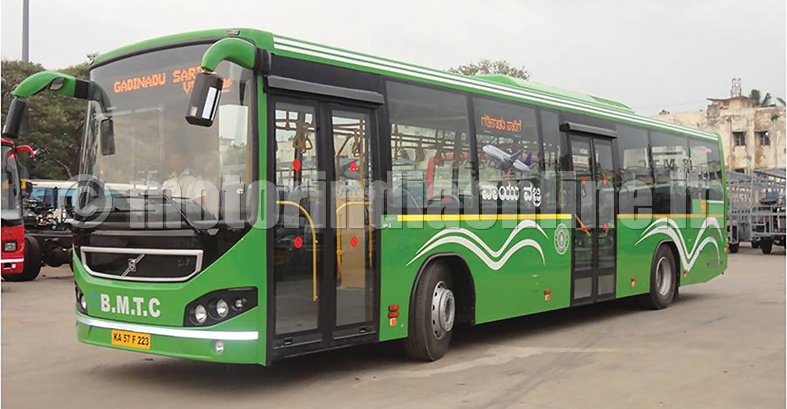Close to 1,500 Volvo buses serve passengers within 30 cities and almost 2,000 coaches operated by state transport undertakings connect prominent tier I and II cities. These statistics bear testimony to the long and successful journey that the Association of State Road Transport Undertakings (ASRTU) and Volvo Buses have made over the last 14 years.
In recognition of this fruitful partnership, Volvo Buses is actively participating in the celebration to mark the 50th year of the foundation of the ASRTU. “The ASRTU has extended tremendous support to Volvo Buses in our shared aim of modernising India’s bus-based public transport system. It is thanks to their progressive mindset that we have been able to bring in products and solutions that have become benchmarks,” said Mr. Akash Passey, Senior Vice President, Business Region International, Volvo Bus Corporation.

Volvo Buses has been in India since 2001 and has built considerable experience when it comes to high-performing bus applications. These buses have been driving change in the industry by introducing various firsts in India, including the true-bus chassis and the low-floor city bus. Even as Volvo Buses set up India’s first fully integrated bus facility in 2008, it was upping the ante.
Breakthrough concepts such as the Volvo 9400 multi-axle coach in 2008, India’s first 14.5m multi-axle coach with tag-axle in 2012, all new Volvo 8400 city bus as per the Urban Bus Specifications II (UBSII). These buses are distinguished by class-leading specifications such as an electronic rear engine, electronic braking system, retarders, electronically controlled air suspensions, vehicle diagnostics features, air-conditioning and luxurious seating for passengers and an ergonomic work environment for the driver.
“These features are in keeping with core values of the Volvo Group, quality, safety and environment care,” said Mr. VRV Sriprasad, Managing Director, Volvo Buses India. Today Volvo Buses has a population of 5,300 buses on the road.
Rich history
Every step along the way, ASRTU members have been extremely proactive in adopting these modern solutions. If it was the Karnataka State Road Transport Corporation (KSRTC) and Andhra Pradesh State Road Transport Corporation (APSRTC) that acquired coaches in 2003, the Rajasthan State Road Transport Corporation pioneered the first public private partnership for the hiring of premium Volvo coaches.

The following year the Maharashtra State Road Transport Corporation introduced the coaches. It was on a Volvo coach that the Delhi Transport Corporation’s (DTC) Delhi-Lahore bus service kick started. Importantly, the ASRTU had finalized a rate contract to institutionalize the adoption of Volvo Buses. The STUs rolled out premium services around Volvo Buses. ‘Volvo’ became a ticket brand, as customers flocked to Airavata, Garuda, Shivneri services. The introduction of multi-axle buses only amplified quality mobility for passengers and profitability for operators.
In 2006, the Bengaluru Metropolitan Transport Corporation (BMTC) inducted low-floor city buses. Public transport operators in Pune and Chennai followed suit. The momentum was rather rapid from thereon. In 2010, as the JNNURM II scheme took off, over a 1,000 buses were deployed in 13 cities.
That number has risen to 1,500 now, with 30 cities taking possession of Volvo Buses. “Hearteningly, we find a number of tier-II cities, including those in the North East are also stepping forward to acquire Volvo Buses. This development resonates well with the Government’s vision to develop 100 smart cities,” added Mr. Sriprasad. Incidentally, ASRTU and Volvo Buses have collaborated to develop UBSII norms for low-floor city buses. The Volvo 8400 is fully compliant with these norms.
It’s not just the shared history with the ASRTU that Volvo Buses is proud of, there is a lot more to come. “We have commenced trials of the UD SLF bus with the BMTC to kick off our foray into the value segment. We also aspire to drive our global electromobility programme in India under the aegis of the Central Government’s FAME initiative. The interest shown in this globally proven concept from all stakeholders has helped build confidence. Exports of Euro VI compliant buses to Europe will also begin soon. In all, Volvo is ready and even ahead to meet the mobility requirements in India,” concluded Mr. Passey.

